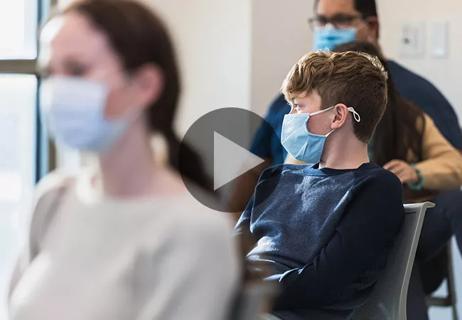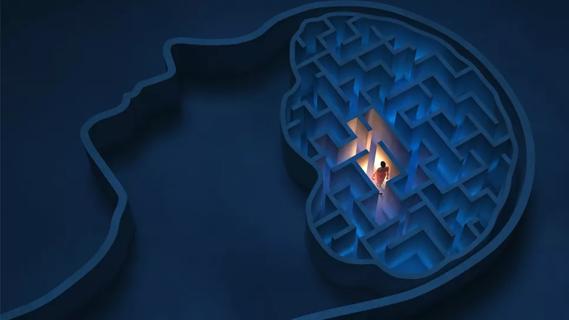Advertisement
Transgender patients’ brains resemble those of their identified gender, not biological gender
It’s not genitalia that determines gender, says clinical psychiatrist Murat Altinay, MD, Head of LGBT Mental Health Services at Cleveland Clinic. A closer look at brain structure and function reveals that transgender people have striking similarities to their identified gender rather than their biological gender — even before hormone therapy.
Advertisement
Cleveland Clinic is a non-profit academic medical center. Advertising on our site helps support our mission. We do not endorse non-Cleveland Clinic products or services. Policy
Dr. Altinay promotes the term “brain gender,” observing that “the brain actually is the main source when it comes to understanding your own gender and gender identity.”
He explains more in the newest episode of Cleveland Clinic’s Neuro Pathways podcast. During the audio interview, he discusses:
Click the player below to listen to the podcast now, or read on for a short edited excerpt. Check out more Neuro Pathways episodes at clevelandclinic.org/neuropodcast or wherever you get your podcasts.
Advertisement
Dr. Altinay: There are a lot of areas and networks in the brain that are involved in self body perception, such as the right anterior parietal lobe, temporoparietal junction and posterior cingulate. The default mode network and salience network also are involved.
When we looked at the literature, there were some structural and functional differences between the transgender brain and the cisgender brain. I categorize these changes as structural and functional because they’re a little bit different when it comes to which areas are affected.
Postmortem studies, which focused on male-to-female transgender brain, found that the brain volumes of transgender women were similar to that of cisgender females in certain areas, such as the central nucleus of the bed stria terminalis or interstitial nuclei of the anterior hypothalamus. These are areas that are essential in sexual behaviors, and the fact that the transgender female brain resembles the cisgender brain was important.
Researchers also looked at some gray-matter volumes and cortical thickness. Again, transgender brains showed similarities to the identified gender even before the patients started hormonal treatment.
When it comes to functional findings, the fMRI findings of the transgender brain versus the cisgender brain, the self body image networks become very, very important. Within the self body image networks, there was decreased connectivity in the transgender population compared to the cisgender population, showing that there was an issue with body self-perception in transgender people.
Other functional studies looked at brain activation. People were given certain tasks, and the activation of certain brain areas was reviewed. Again, transgender people showed a lot of similarities to their identified gender as opposed to their biological gender.
Advertisement

Virtual care, shared appointments and a team-based approach help expand access

Depression, substance abuse and more may emerge in adulthood

How to care for teens struggling with sexual or gender identity

Dr. Amit Anand shares his journey from a 1990s discovery to an ongoing randomized trial

Multidisciplinary program helps budding clinicians explore the human dimensions of patient care and medical research

Program empowers Black stylists to provide emotional first aid

Positive emotions, low impulsivity appear to safeguard against weight gain, other comorbidities

Consultation service provides comprehensive care to patients with anxiety, PTSD, schizophrenia, and other high-risk disorders